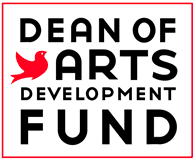Trends and New Directions in Canadian Political Behaviour: a Symposium in Honour of Elisabeth Gidengil

November 30 - December 1, 2017
The Centre for the Study of Democratic Citizenship has the pleasure to announce that on November 30 and December 1, 2017 it will host a symposium to mark the 70th birthday of its founding Director Elisabeth Gidengil. Dr Gidengil is Canada's pre-eminent scholar on political behaviour, gender and diversity, and the media, and has been a pioneering force in political science in Canada and abroad. The symposium entitled "Trends and New Directions in Canadian Political Behaviour" will take place at the Faculty Club of McGill University in Montreal. The two-day event will begin at 4:15pm on Thursday November 30th with the word of welcome, following a panel on gender and diversity in Canadian elections. The public keynote presentation by Susan Banducci, entitled “Twice as Hard, Half as Good? Reconciling Gendered Voting and Women’s Electoral Success” will start at 6pm, followed by a reception. The second day of the symposium starts at 9am, where there will be three panels dealing respectively with parties and partisans; understanding the Canadian elector; and media and politics. The panels will be followed by a roundtable featuring a career retrospective in honour of Elisabeth Gidengil.
View or download the full program here.
This event is open to all members and students of the Centre for the Study of Democratic Citizenship and the Department of Political Science at McGill University, both are also a co-sponsors of the event.
Register here before Sunday November 26, 2017 (registration is mandatory).
Canadian voters have been in a dramatically shifting landscape over the past 15 years. New parties arose and formed governments, while others have seen their support plummet only to dramatically rebound in the next election. Diversity in representation has increased substantially, directing attention to the effects it has on the quality of public policy and citizen engagement. And while the media remains crucial for Canadians as the means through which we learn of these developments, it both struggles to address these changes while itself being transformed by digital technology and social media. Together, these developments in partisan and electoral dynamics, diversity, and the media raise crucial questions about democracy and democratic citizenship in Canada.
This symposium evaluates how these transformations affect Canadians' participation and engagement with politics, as well as the implications of these behavioural changes for policy support, and for governance. Why did new parties and actors emerge, how did they shift elections, and what are the implications of these changes for government accountability and citizen engagement? What are the consequences of increasingly diverse representation -- but continued under-representation -- of women, people of colour, Indigenous peoples, and immigrants? How does diversity in representation affect the quality of public policy and citizen engagement? And, while the language and content employed by the media to communicate these changes is ostensibly neutral, why does it continue to replicate existing political barriers and challenges, particularly with respect to diversity? The aim of this symposium is to ask how changes to these three pillars of electoral politics, diversity, and the media affect the political actions of Canadians, and how that behaviour, in turn, shapes democracy in Canada.
Elisabeth Gidengil's scholarship is crucial to these questions. She is Canada's pre-eminent scholar on political behaviour, gender and diversity, and the media. Her work is essential to our understanding of the consequences of each of these sets of changes for Canadians and their democratic citizenship. The structure of the symposium has been selected as a reflection of Dr. Gidengil's distinguished contributions to scholarship and public debate over her career. Her 70th birthday has provided the opportunity for critical engagement with the academic literature on political behaviour in Canada. Examining the forces that shape how citizens engage with and think about politics is of critical importance, and ensuring that all academics, students, and practitioners contribute to this discussion, remain as timely and relevant as ever.
Organizational committee: Allison Harell, Melanee Thomas, Jason Roy, Elizabeth Goodyear-Grant, Dietlind Stolle, and Cameron Anderson.
This symposium is made possible thanks to a Connection grant of the Social Sciences and Humanities Research Council of Canada, and financial support of the Canadian Opinion Research Archive, the Faculty of Arts at McGill University, and the Department of Political Science at McGill University.
 |
 |
 |
 |